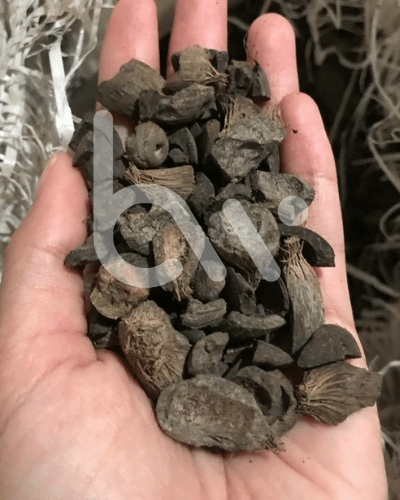
Palm Shells
Palm shells, the outer layer of the oil palm fruit, are a byproduct of the palm oil industry used globally as a biomass fuel. Recognized for their sustainability, these shells are readily available and have a high calorific value, making them efficient for electricity, heat, and steam generation. Apart from being a fuel source, palm shells contribute to the production of activated carbon for water and air purification. They also serve as a nutrient-rich soil amendment, particularly useful for enhancing soil quality in sandy soils by improving moisture retention and structure.



Used For
Sustainable Power Generation
Palm shells find widespread use as a biomass fuel in power plants, contributing to the generation of electricity. This sustainable energy source is harnessed to power crucial industrial processes, including the milling and refining of palm oil.
Industrial Heat Source
The combustion of palm shells generates heat, making them valuable for various industrial applications such as drying, sterilization, and distillation. This eco-friendly heat source aids in optimizing industrial processes.
Charcoal Transformation
Through the carbonization process, palm shells are converted into charcoal. This resulting charcoal is a valuable resource for cooking and heating purposes, offering an eco-friendly alternative for these essential everyday activities.
